News
Collaborator Spotlight

Aulia Dini Rafsanjani
What do you find challenging or exciting about interdisciplinary collaboration? Working on interdisciplinary projects also broadens my understanding of how other people understand and tell the story from the data.

Ruiling Kang
What’s one common misconception about your area of research that you’d like to dispel? We’re diving into sampling, doing database gymnastics, debugging collection processes… It’s like we’re wearing multiple hats, from engineering to social science and even user experience testing.
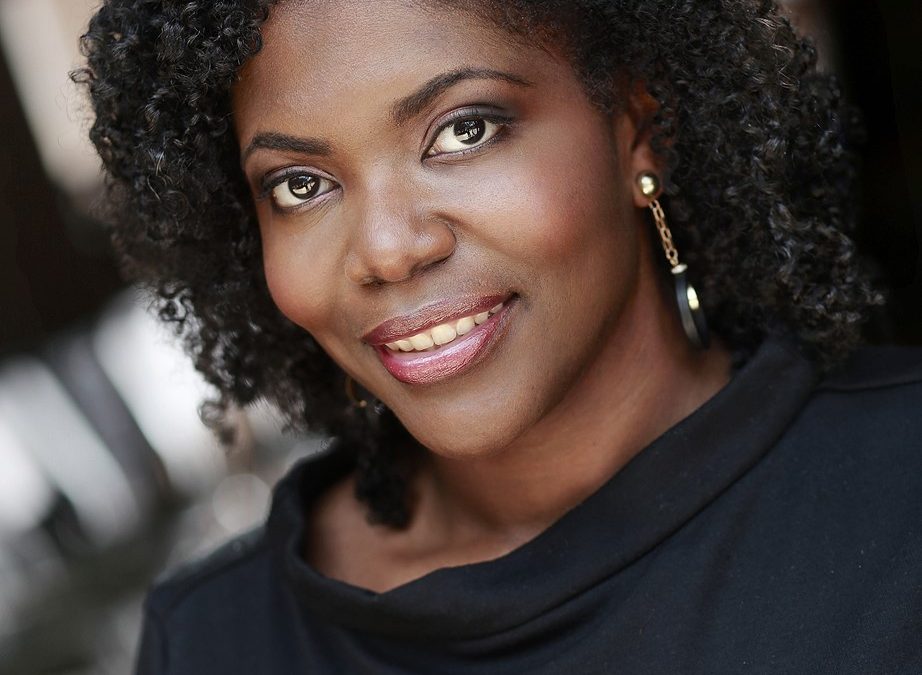
Tahlia Bragg
What’s the academic path that brought you to where you are now? Seeking and insisting that social justice and multiculturalism were at the core of all of my academic and professional pursuits.

Karis Hawkins
What’s one common misconception about your area of research that you’d like to dispel? This research is about going deeper and combining a wealth of knowledge to understand and identify the root of the population health disparities we already know about.

Daekiara Smith-Ireland
How did you become interested in structural racism and health? Research on health among the black community is frequently limited, prejudiced, or out of date. This inspired me to pursue a career engaging people of color, dedicated to reducing the myriad racial inequities experienced in a variety of ways that negatively impact our health. Finding answers to this problem can aid in the more effective dismantling of structural racism among people of color.

Dayna Johnson
What’s one common misconception about sleep epidemiology that you’d like to dispel? Sleep itself is a complex construct which is actually challenging to measure, and involves bringing several methods to the table. The myth is thinking it’s just an one-dimensional concept that’s easy to classify.

Amanda Ajrouche
How did you become interested in structural racism and health? As an Arab American, it became clear quite early that research around Arab Americans is so limited and outdated- this really propelled me to want to jumpstart my research around Arab American communities. Structural racism is something that affects all people of color, although not in the same ways, if we work on finding solutions that can help liberate all of our communities, we can dismantle structural racism more effectively.

Huaman Sun
What’s one common misconception about your area of research that you’d like to dispel? Although survey research has been widely used as a tool to describe and understand society, few people know survey methodology as a discipline. We are a group of statisticians, psychologists, sociologists and data scientists who study the sources of error (the bias and variability) in surveys. We aim to improve the quality of survey data at each stage of data collection.

Devon Payne-Sturges
What’s one common misconception about your area of research that you’d like to dispel? I think a lot of people might see environmental science research as pretty doomsday. But I think to flip that around is that we need to understand those issues in order for a solution to be identified. And that’s a call to action that in environmental health sciences there needs to be more emphasis on not only identifying the bad, but also talking about the solution.
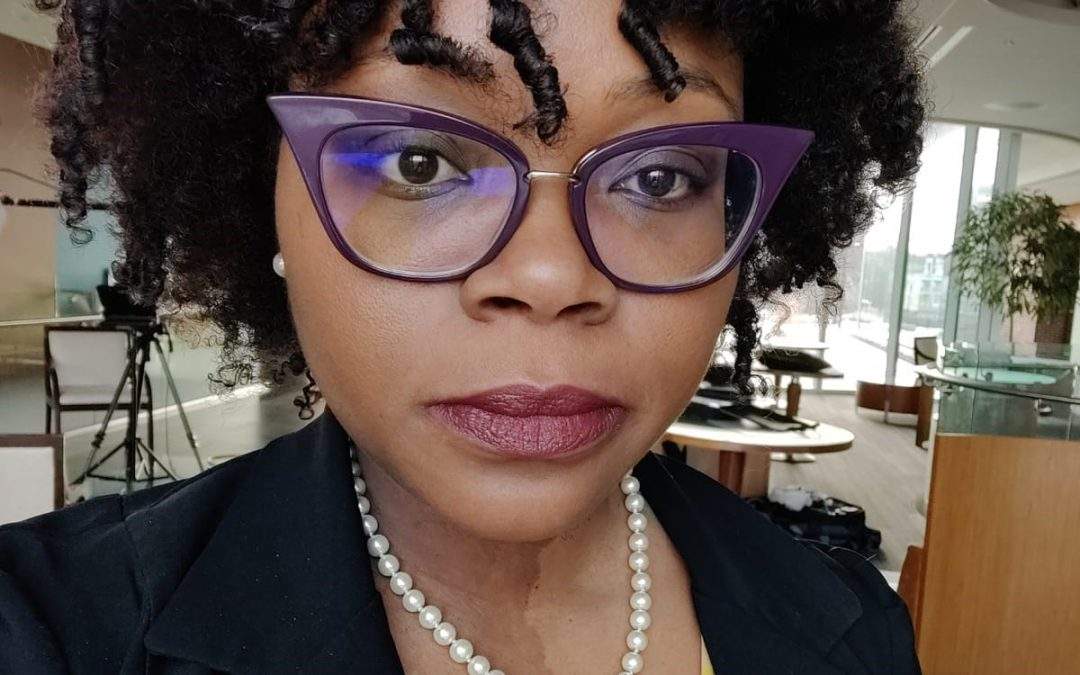
Marie-Anne Rosemberg
What is your area of research or expertise that you bring to the Landscapes collaboration? I want to look at the health and well being of at-risk workers, marginalized workers. They are primarily low wage women, individuals of color, and immigrants. These people are the ones who are living in different communities that are putting them at this disadvantage, who are most likely to experience poor health conditions because of all those other systemic factors that come into play, including workplace factors.
Featured Publications
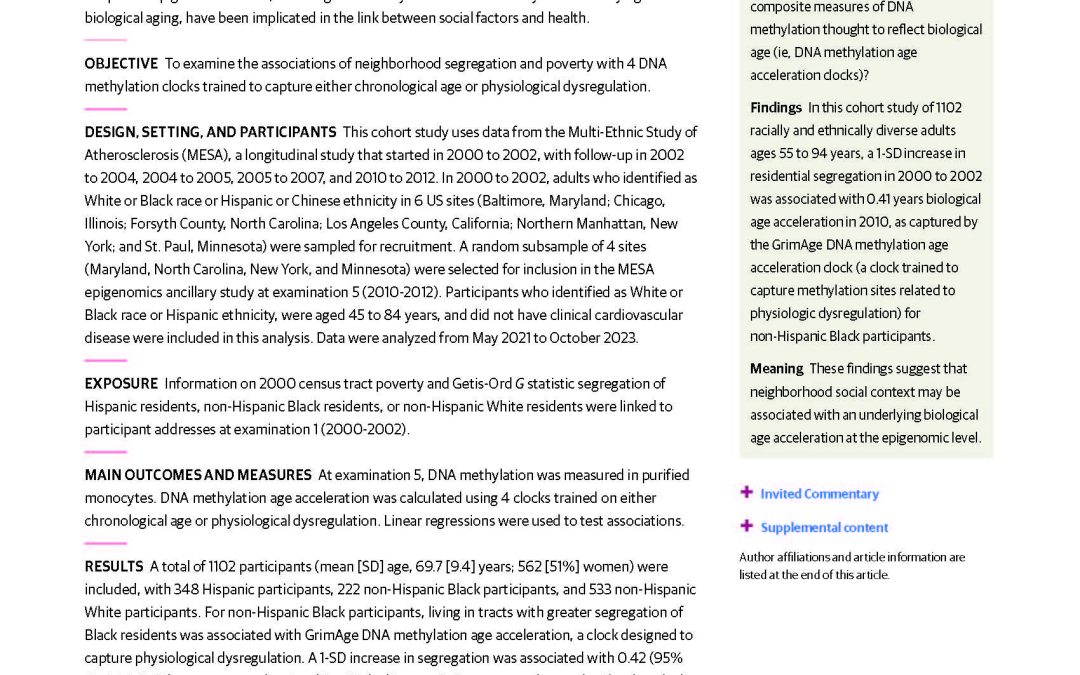
Racial and Ethnic Residential Segregation and Monocyte DNA Methylation Age Acceleration
In this recent publication, Margaret T. Hicken, John Dou, Kiarri N. Kershaw, Yongmei Liu, Anjum Hajat, and Kelly M. Bakulski use the MESA study to suggest that neighborhood social context may be associated with an underlying biological age acceleration at the epigenomic level.
Racial and Ethnic Residential Segregation and Monocyte DNA Methylation Age Acceleration
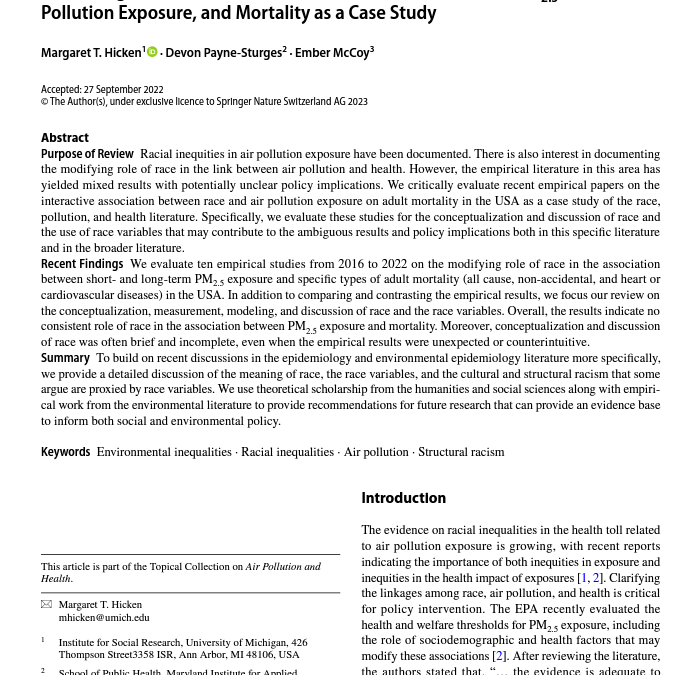
Evaluating Race in Air Pollution and Health Research: Race, PM2.5 Air Pollution Exposure, and Mortality as a Case Study
In this recent publication, Margaret T. Hicken, Devon Payne-Sturges, and Ember McCoy build on recent discussions in the epidemiology and environmental epidemiology literature more specifically, to provide a detailed discussion of the meaning of race, the race variables, and the cultural and structural racism that some argue are proxied by race variables.
Read more about Evaluating Race in Air Pollution and Health Research
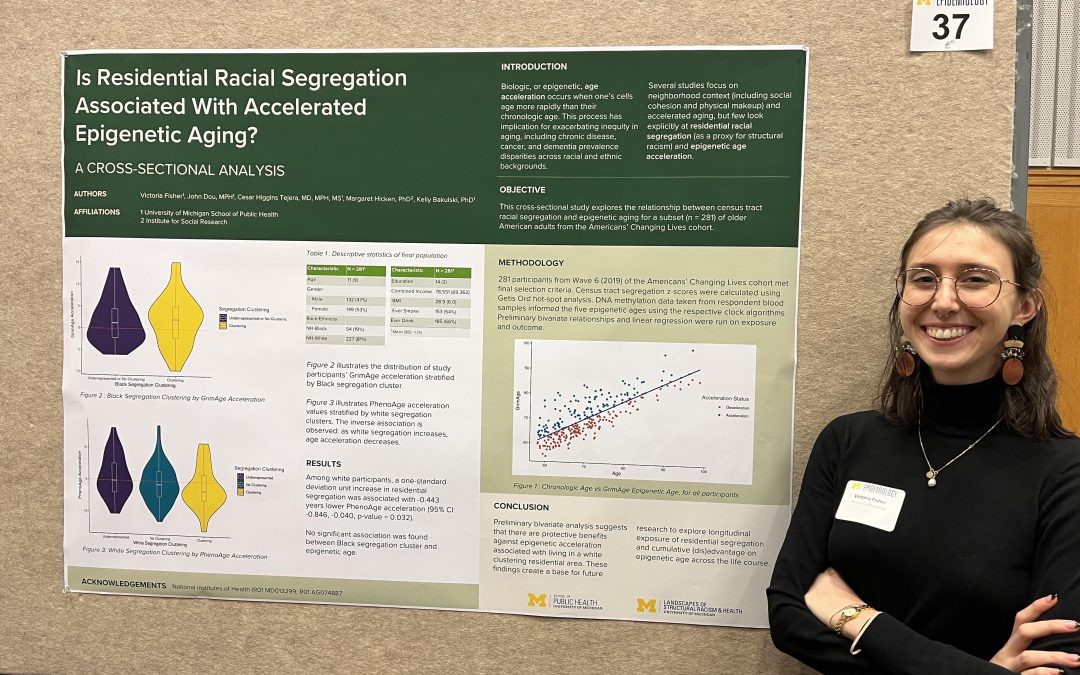
Poster: Is Residential Racial Segregation Associated with Accelerated Epigenetic Aging?
At the 2022 University of Michigan Epidemiology Poster Session, Victoria Fisher presented preliminary results from her study of the association between residential racial segregation and accelerated epigenetic aging.
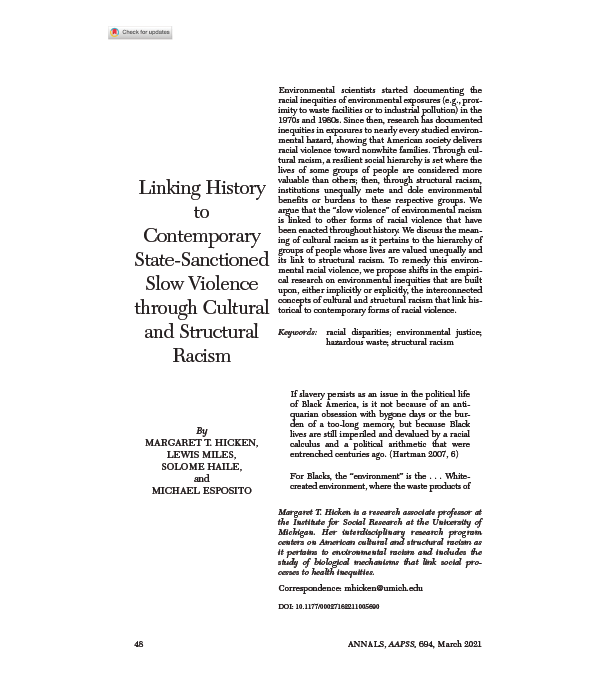
Linking History to Contemporary State-Sanctioned Slow Violence through Cultural and Structural Racism
In this recent publication, Margaret T. Hicken, Lewis Miles, Solome Haile, and Michael Esposito argue that the “slow violence” of environmental racism is linked to other forms of racial violence that have been enacted throughout history. This paper lays out many of the important themes of the research agenda of the Landscapes of Structural Racism and Health Lab:
“The first step in attempting to make lasting change toward equity is to develop an empirical literature that tests this general framework, linking history to the present through the common themes of cultural racism and the contemporaneous features of structural racism.”
Read more about Linking History to Contemporary State-Sanctioned Slow Violence
